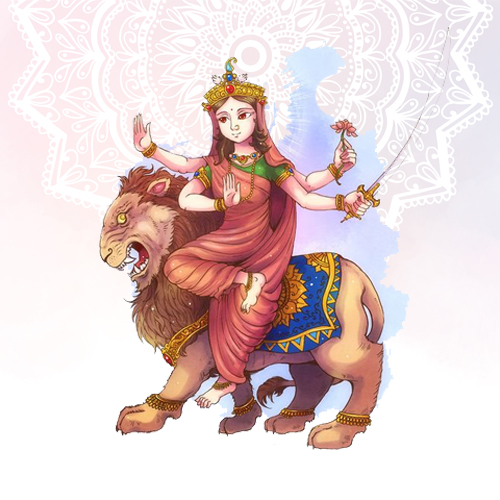
Katyayani Puja
Katyayani Pooja is a Hindu religious ritual dedicated to Goddess Katyayani, one of the forms of Goddess Durga. Katyayani is the sixth form of the Navadurga (nine forms of Durga) and is worshiped during the Navaratri festival, particularly on the sixth day.
-
Goddess Katyayani: According to Hindu mythology, Goddess Katyayani was born from the combined energies of the gods to defeat the demon Mahishasura. She is depicted as a warrior goddess, often shown riding a lion and carrying weapons.
-
Significance: Katyayani Pooja is performed to seek the blessings of Goddess Katyayani for overcoming obstacles, achieving victory, and gaining courage and strength. It is also believed to help in the fulfillment of desires, including finding a suitable life partner and ensuring marital bliss.
-
Rituals: The pooja involves various rituals, including the chanting of mantras, offering flowers, fruits, and sweets to the deity, and performing aarti (ritual of worship with light). Devotees often observe fasts and participate in special ceremonies at temples.
-
Katyayani Vrata: This is a special vow or fast observed by young women, especially those seeking a good husband. It is believed that by performing the Katyayani Vrata, one can get rid of any obstacles in marriage and find a suitable partner. This vrata is mentioned in the Bhagavata Purana, where young gopis (cowherd girls) performed it to get Lord Krishna as their husband.
-
Timing: While the Katyayani Pooja is particularly significant during the Navaratri festival, devotees can perform this pooja on any auspicious day, especially on Fridays and during other festivals dedicated to the goddess.
-
Mantras: One of the important mantras chanted during the pooja is the Katyayani Mantra:
-
Benefits: Devotees believe that performing Katyayani Pooja brings various benefits such as protection from negative influences, spiritual upliftment, success in personal and professional life, and overall well-being.
Katyayani Pooja is a revered practice in Hinduism, symbolizing the divine feminine energy and the power to overcome challenges and fulfill righteous desires.
 Add Temple
Add Temple